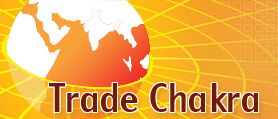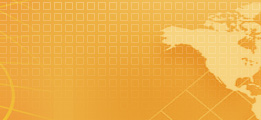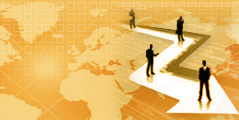Tourism is the activities of persons traveling to and staying in places outside their usual environment for not more than one consecutive year for leisure, business or other purposes.
Malaysia is well endowed with abundance of natural resources particularly suitable for sustainable tourism. Tourism industry maintains its sustainability through its economic viability. Increasing attention has been given by the Malaysian government to develop sustainable tourism as an alternative source of foreign exchange.
The development allocation for this industry has been increasing over the years. It has been increased from Ringgit Malaysia (RM) 605.5 million in the 7th Malaysian plan to RM1009 million in the 8th Malaysian plan period. In the 9th Malaysian plan period, the allocation reached to RM1367 million.
Tourism department officially begun in 1959 was transformed to Tourism Development Corporation (TDC) in the early 1970’s, the beginning of ‘new era’ for the Malaysian tourism industry. The recognition also came following a phenomenal growth rate experienced by the industry since the late 1960s. TDC was formed in 1972 under the Ministry of Trade and Industry (MITI), which was responsible for the coordination, development, and promotion of domestic and international tourism.
During the period of 1970s, government efforts to develop tourism was set off to several development objectives such as, increasing foreign exchange earnings, increasing employment, and income levels, fostering regional development, diversifying the economic base, and increasing government revenue.
The concentrated effort was given to the development of basic infrastructure for tourism in that period. Tourism industry accrued higher priority from the government in 1980s.
Government supports for tourism continued with the establishment of the Ministry of Tourism and Culture in 1987 later renamed as the Ministry of Culture, Arts, and Tourism (MOCAT) in 1990. The industry has had full support in terms of funding, planning, coordination, regulation and enforcement) with formation of MOCAT which was upgraded to the Ministry of Tourism in 2004 to coordinate, direct, and ensure that all tourism development initiatives and programs were implemented according to National Tourism Master Plan in line with the government’s objective to encourage and accelerate the domestic private sector and stimulate the tourism sector to lead the growth of the economy.
The tourism industry growth rate is dependent on the growth rate of the overall national economy and the hotel industry growth rate, in turn, is dependent, to some extent, on the growth of the tourism industry. Past statistics have indicated that the hotel sales volume represents approximately 36% of the total receipts from tourism. This fact should hold true when the economy remains stable.
The performance of the hotel sector is also influenced by the volatility of changes in the external and international environment. An economic upswing or downturn will have an almost immediate impact on its performance. In recent years, the Malaysian hotel industry has seen drastic changes in its external environment, largely as a result of the greater extent of volatility in the environment and the increasing level of uncertainties in the world’s economy. On a macro level, the hotel industry in Malaysia is quite vulnerable to foreign and international competition.
The operation of tourism facilities, services and amenities are often dependent on a number of travel infrastructure networks. These networks may include transportation, water supply, energy/power, waste disposal and telecommunications.
Transportation
Easy access to tourism destinations in terms of international transport and facilities for easy movement within the destinations are generally considered to be prerequisites for the development of tourism.
Malaysia has an excellent transport infrastructure in terms of:
- International air services and international airports.
- Domestic air services.
- Land transport systems and routes.
- Water transport
Water Supply Systems
One of the most important requirements for the development of tourism facilities is an adequate and continuous supply of safe water for drinking purposes as well as domestic and recreational use.
Malaysia has upgraded the various aspects of the water system to ensure adequate and continuous supply of safe water for drinking purposes as well as domestic and recreational use.
Energy and Power
Power demand reflects the expectations of international visitors who want the standard of services to which they are accustomed. Malaysia has ensured adequacy of supply to meet peak-load requirements.
Waste Disposal Systems
The disposal of various types of waste is a matter of critical concern, given that the adequacy of the methods chosen for the disposal of liquid waste (sewage) and solid waste will play a significant role in the protection of the health of tourists and the resident community. Malaysia has ensured the adequacy of various waste disposal methods to ensure tourism destinations retain attractiveness if, among other things, the environment is clean, pleasant and pollution-free.
Post and Telecommunication Services
The accessibility of post and telecommunication services is crucial, especially in view of the size of the Asian and Pacific region. The ease and reliability of communications is especially critical for the business traveler. Malaysia has a reasonable infrastructure system of post and telecommunication services which includes postal services, telephones, telexes, facsimile and other electronic machines, and radio and television relay.




